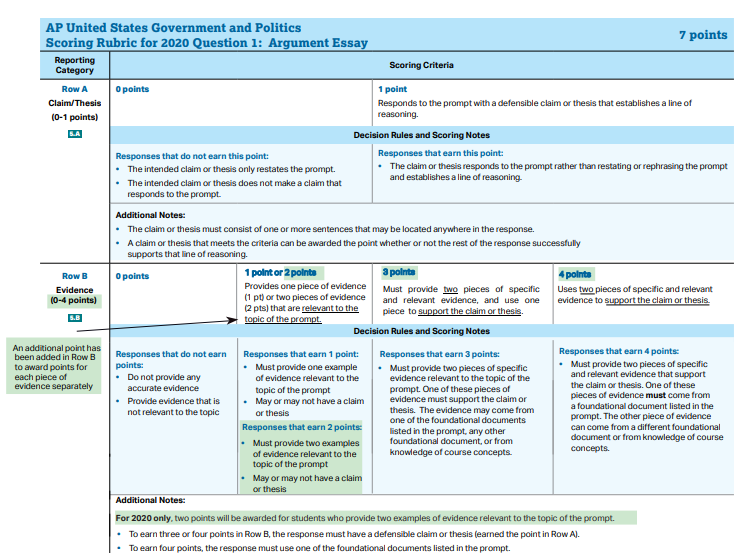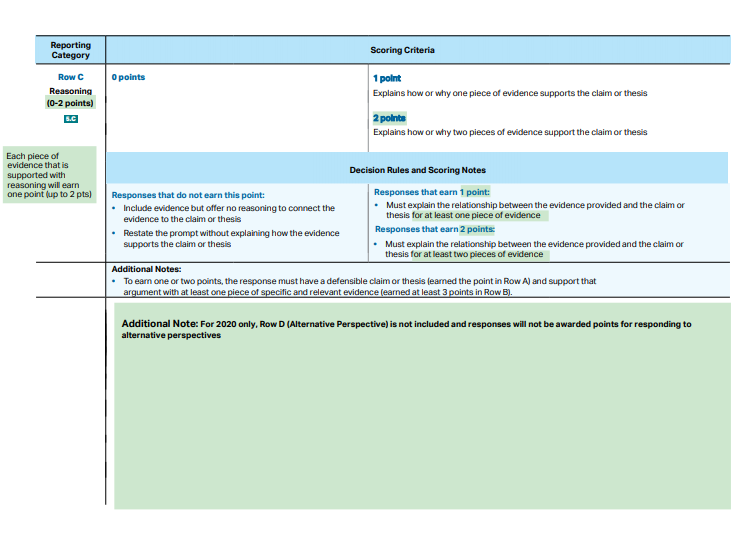2022 AP US Government & Politics Exam Guide
10 min read•december 3, 2021
AP US Government 👩🏾⚖️
240 resourcesSee Units
Your guide to the 2022 AP US Government & Politics Exam
We know that studying for your AP exams can be stressful, but Fiveable has your back! We have created a study plan that will help you crush your AP English Literature exam. We will continue to update this guide with more information about the 2022 exams, as well as helpful resources to help you score that 5. Create a Fiveable account and join Hours 🤝to stay involved in all things AP exams! 😁
Format of the 2022 AP US Gov Exam
This year, all AP exams will cover all units and essay types. The 2022 US Government and Politics exam format will be:
Section I
- Multiple Choice (accounts for 50% of your score) 📃
- 55 questions
- 80 minutes
Section II
- Free Response (accounts for 50% of your score) ✍
- 4 questions
- #1—Concept Application 📝
- #2—Quantitative Analysis 📈
- #3—Supreme Court Case Comparison Essay ⚖
- #4—Argumentative Essay 🗳
- 100 minutes
Argument Essay Scoring Rubric for the 2022 AP US Gov exam


When is the 2022 AP Gov exam and how do I take it?
The exam is on Monday, May 2 at 8 am, your local time—this will be a paper test at your school.
How should I prepare for the AP Gov exam?
- First, you need to take stock of your progress in the course so far so that you can build your study plan according to your needs. Download a 1-page Cram Chart PDF for AP Gov so that you can see a map of the entire course and quickly spot your weak areas that you need to focus on.
- Then, create your study plan by focusing on your learning styles and areas to improve. Which types of questions do you need to practice more? We’ve put together this plan to help you study between now and May. This will cover all of the units and essay types to prepare you for your exam.
- Importantly, don't only study by yourself. Social learning is highly effective and helps you solidify what you are studying. Join Hours 🤝to talk to real students just like you studying for this exam!
- Finally, build your study schedule in advance! We highly suggest making your study schedule ahead of time so that you can easily join interactive study sessions such as live streams, voice chats, and study groups.
Pre-work: set up your study environment
Before we begin, take some time to get organized. Remote learning can be great, but it also means you’ll need to hold yourself accountable more than usual.
🖥 Create a study space.
Make sure you have a designated place at home to study. Somewhere you can keep all of your materials, where you can focus on learning, and where you are comfortable. Spend some time prepping the space with everything you need and you can even let others in the family know that this is your study space.
📚 Organize your study materials.
Get your notebook, textbook, prep books, or whatever other physical materials you have. Also create a space for you to keep track of review. Start a new section in your notebook to take notes or start a Google Doc to keep track of your notes. Get yourself set up!
📅 Plan designated times for studying.
The hardest part about studying from home is sticking to a routine. Decide on one hour every day that you can dedicate to studying. This can be any time of the day, whatever works best for you. Set a timer on your phone for that time and really try to stick to it. The routine will help you stay on track.
🏆 Decide on an accountability plan.
How will you hold yourself accountable to this study plan? You may or may not have a teacher or rules set up to help you stay on track, so you need to set some for yourself. First set your goal. This could be studying for x number of hours or getting through a unit. Then, create a reward for yourself. If you reach your goal, then x. This will help stay focused!
🤝 Get support from your peers.
There are thousands of students all over the world who are preparing for their AP exams just like you! Join Hours 🤝 to chat, ask questions, and meet other students who are also studying for the spring exams. You can even build study groups and review material together!
AP US Government & Politics 2021 Study Plan
Unit 1: Foundations of American Democracy
Big takeaways:
Unit 1 introduces the concept of democracy and its various forms. The documents that first started the United States are analyzed by looking at the challenges and promises associated with each. The division of power within our government: individual rights vs government authority and state vs federal government powers are at the heart of this unit and discussed within each founding document.
Definitely do this:
🎥 Watch these videos:
- Intro to American Government, models of Representative Democracy: A full review of the types of democracy, the difference between government and politics as well as the functions of government are discussed.
- Foundational Documents Review: A deep dive into the foundational documents you need to know for the exam.
- Ratification of the Constitution: Constitutional Convention: A review of the compromises leading to the ratification of the Constitution.
📰 Check out these articles:
✍️ Practice:
- Best Quizlet Deck: AP Gov Unit 1 by bryce_s
If you have more time or want to dig deeper:
- 👻 Check out Too Late to Apologize: An Ode to the Declaration of Independence (YouTube)
Unit 2: Interactions Among Branches of Government
Big takeaways:
Unit 2 dives into the separation of powers between our three branches of government. It looks at the specific powers of each branch as outlined in the Constitution and how each branch has grown in power through the years. The system of checks and balances and the role each branch plays in holding the other accountable is analyzed.
Definitely do this:
🎥 Watch these videos:
- Legislative and Judicial Branch Review: This stream provides a review of the legislative and judicial branches including their powers and role within the federal government.
- Powers of the Presidency This stream provides a review of the executive branch including its powers and role within the federal government.
- Separation of Powers/Checks and Balances: This video from Crash Course reviews the separation of powers between the three branches of government. It also looks at the ways each branch “checks” the other.
📰 Check out these articles:
✍️ Practice:
- Best Quizlet Deck: Unit 2 – AP Gov by k8te13
If you have more time or want to dig deeper:
Unit 3: Civil Liberties and Civil Rights
Big takeaways:
Unit 3 takes the principles of our government established in Units 1 and 2 to analyze maintaining those principles while balancing liberty and order. The role of the Bill of Rights and the 14th amendment in guaranteeing civil rights and liberties for all citizens is at the heart of this unit.
Definitely do this:
🎥 Watch these videos:
- First and Second Amendments: This stream looks at what the first and second amendments say, how they have been interpreted and some of the major Supreme Court cases around them.
- Civil Liberties and Civil Rights: This video from crash course provides a review of the civil liberties and civil rights guaranteed to US citizens. It also looks at the way the Bill of Rights has been interpreted since its inception in relation to liberties and rights.
- The 14th Amendment: This stream breaks down the 14th amendment and many of the key terms associated with it: due process, equal protection, incorporation, citizenship, and privileges or immunities clause.
- Required Supreme Court Cases from 1st-10th Amendments: This stream reviews Supreme Court cases about the 1st-10th Amendments and how they protect civil liberties today!
📰 Check out these articles:
✍️ Practice:
- Best Quizlet Deck: AP Gov – Civil Liberties and Rights by Sandy_Midgley
If you have more time or want to dig deeper:
- 📜 Check out Bill of Rights and Bill of Rights (YouTube)
- Civil Liberties and Civil Rights (Fiveable stream)
Unit 4: American Political Ideologies and Beliefs
Big takeaways:
Unit 4 focuses on political ideology - the idea that there are different and consistent patterns of beliefs about political values and the role of government within the context that we live in. This unit will discuss the different American ideologies and how major parties influence them.
Definitely do this:
🎥 Watch these videos:
- Political Socialization and Political Ideology: This stream discusses what influences people's political views and a few different dominant political ideologies.
- Political Parties and Their Platforms: This stream dives into the major beliefs and ideologies of the Republican and Democratic party platforms, the history of political parties, their impact on voters and the government, and third parties were also discussed.
- Economic Ideology - Keynesian vs Supply Side: In this stream we dived into fiscal economic theory and policy, looking at the liberal take on Keynesian theory and the conservative look at supply-side theory.
📰 Check out these articles:
✍️ Practice:
- Best Quizlet Deck: AP GOV Unit 4 by MARGARET_CYLKOWSKI
If you have more time or want to dig deeper:
Unit 5: Political Participation
Big takeaways:
This unit focuses on how we, citizens, can participate in politics as well as how the media, finance and other factors play a part in our government and policy-making.
Definitely do this:
🎥 Watch these videos:
- Voting and Voter Behavior: Who votes and why do they vote? This stream answers these questions and explains the process of voting in the US in this stream.
- Campaign Finance: Campaign finance isn't as scary as you think! This stream looks at the Federal Elections Campaign Act, hard vs soft money, Buckley vs Valeo, Bipartisan Campaign Reform Act, Citizens United vs FEC, 501(c)s, and more!
- Media Ownership and Bias: This steam discusses the growing concentration of media companies and how bias in media affects both policy-making and public interest.
- Critical Elections: Realignments and Dealignment: Often, students are confused on the differences between a party realignment and dealignment. This stream covers those around the five critical elections in US history.
✍️ Practice:
- Best Quizlet Deck: AP Government - Political Participation by Carpenter-Economics
Multiple Choice Questions (MCQ)
Definitely do this:
📰 Check out these articles:
AP US Government - Free Response Questions (FRQ)
Definitely do this:
🎥 Watch these videos:
- Breaking Down the Supreme Court Case Comparison Essay: This stream discusses how exactly to write the Supreme Court Case Comparison Essay, FRQ #3, on the AP Gov exam! We talked about the elements of a good response, and wrote one ourselves!
- Writing Workshop on the Argumentative Essay: This stream explores the Argumentative Essay, looking at the rubric and then using the remainder of the time to practice our skills.
📰 Check out these articles:
✍️ Practice:
Browse Study Guides By Unit
🏛Unit 1 – Foundations of American Democracy
⚖️Unit 2 – Branches of Government
✊🏽Unit 3 – Civil Liberties & Civil Rights
🐘Unit 4 – American Political Ideologies & Beliefs
🗳Unit 5 – Political Participation
✏️Frequently Asked Questions
🧐Multiple Choice Questions (MCQ)
✍️Free Response Questions (FRQ)
✍️Exam Skills (MC, FRQ)

© 2023 Fiveable Inc. All rights reserved.